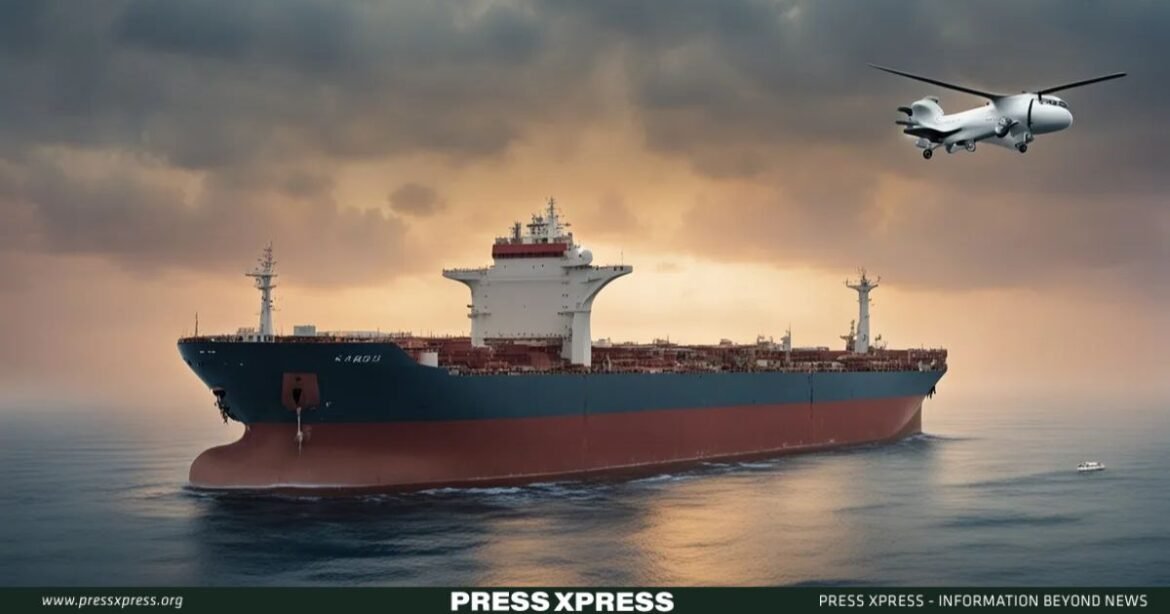Tehran rejected Washington’s assertions that a drone attack on a tanker near the Indian coast originated from Iran, deeming the claims as “worthless.” The rebuff from Iran comes in the aftermath of a Pentagon statement accusing Tehran of orchestrating the attack on a Japanese-owned chemical tanker. The incident occurred amidst a series of drone and missile assaults by Iran-backed Houthi rebels in the Red Sea, expressing solidarity with Palestinians in Gaza.
You can also read: China-Russia Trade Hits Record High, Surpassing $200 billion
Nasser Kanani, Iran’s foreign ministry spokesman, dismissed the allegations, stating, “We declare these claims as completely rejected and worthless. Such claims are aimed at projecting, distracting public attention, and covering up for the full support of the American government for the crimes of the Zionist regime (Israel) in Gaza.”
Iran also criticized recent comments from UK Foreign Secretary David Cameron, dismissing them as “repetitive” and “threadbare.” Cameron had referred to Iran as a “malign influence in the region and the world” and called for “deterrent measures” against it.
These developments unfold against the backdrop of Israel’s ongoing conflict in Gaza, marked by 11 weeks of air and ground attacks resulting in over 20,400 casualties, predominantly women and children.
Broader security threat
The MV Chem Pluto, a Japanese-owned tanker, fell victim to an attack on Saturday while traversing 200 nautical miles (370km) off the Indian coast, as reported by the US Pentagon. The targeted vessel, identified as “Israel-affiliated” by maritime security firm Ambrey, had been en route from Saudi Arabia to India. This incident, amid a recent surge in maritime assaults, marks the first that the US has directly attributed to Iran and the initial attack on a vessel outside the Red Sea.
Leading a global task force to counter the Houthi threat, the US has consistently accused Iran of extensive involvement in such activities. Despite these allegations, Iran maintains its innocence, asserting that it neither coordinates with the Houthis nor plays a role in the attacks. Deputy Foreign Minister Ali Bagheri emphasized this stance, stating, “The resistance (Houthis) has its tools … and acts under its own decisions and capabilities.”
In response to heightened tensions, Iran’s navy has bolstered its capabilities, reportedly taking delivery of long-range cruise missiles and reconnaissance helicopters, as detailed by the country’s state media. This development adds a layer of complexity to the evolving security dynamics in the region. As accusations and counterclaims intensify, the situation underscores the broader security threat posed by maritime incidents, with the potential to further escalate geopolitical tensions.
What do the Houthis stand to gain?
The Houthi rebels in Yemen have been actively working to consolidate power and, while they may not currently achieve international recognition as the legitimate government, their goal is to compel the international community to acknowledge them as the de facto governing authority in Yemen.
Thomas Juneau, an assistant professor at the University of Ottawa, suggests that their alignment with the Iran-led ‘axis of resistance’ is aimed at showcasing their support for Hamas during the Gaza war. This strategic move is intended to establish the Houthis as a key member of the Iran-led coalition.
Despite the presence of a US-led task force, the Houthis assert their determination to disrupt maritime traffic in the Red Sea and have explicitly stated their capability to turn the Red Sea into what they term a ‘graveyard’.
The US has no good options against the Houthis
The United States finds itself in a precarious situation with limited favorable options against the Houthi rebels. The White House and the Pentagon are treading carefully, recognizing the potential consequences of various courses of action. Taking no action poses a significant threat to the Red Sea route, which could detrimentally impact the economies of the US, Europe, and Asia.
On the other hand, the current half-measures proposed by the US, such as escorting convoys without attacking land-based missile sites, may prove inadequate in ensuring safe passage. Failure in this regard would not only damage the economy but also result in a loss of credibility and failure to prevent an economic downturn. The possibility of a direct attack by the US poses the risk of a dangerous escalation that could be challenging to contain.
In light of these dilemmas, France, Italy, and Spain are adopting a cautious approach. They plan to “unilaterally” deploy their frigates to the Red Sea to “protect the ships of their respective nations.” This strategy allows them to distance themselves from any potential escalation resulting from a US Navy attack on Yemen. By doing so, these European nations can assert that they did not contribute to the intensification of the conflict, placing the responsibility squarely on the United States.


